If you’re in the market for an RV, should you focus on motorhomes or avoid them?
Why not drive your living space when your goal is to bring a comfortable home on the road with you?
Before you start shopping, it’s crucial to consider the downsides of motorhomes. So, today, we’re taking a closer look at reasons why you may want to avoid these kinds of RVs altogether.
Let’s get started!
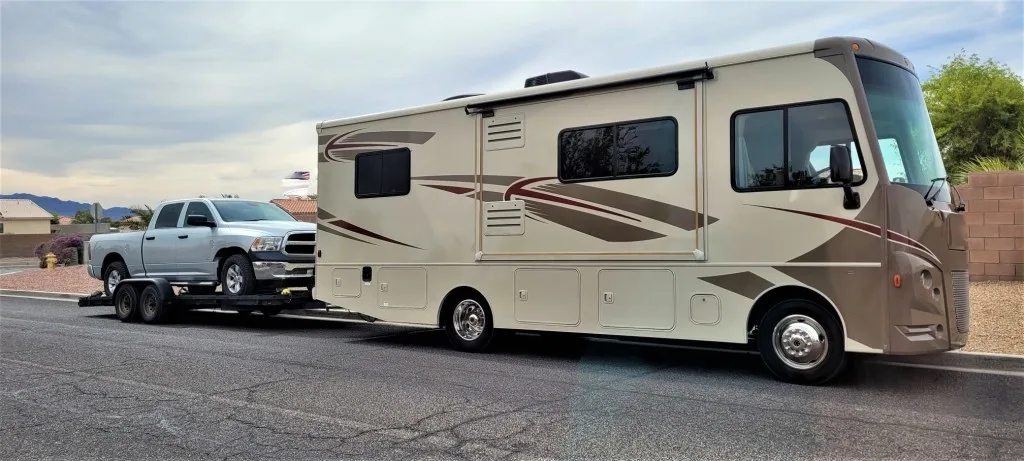
Types of Motorhomes
Even if you’re hesitant to buy or rent motorhomes, it’s important to know the details of the various kinds you may encounter at the dealership or around the campground.
Class A
Class A motorhomes are what many people think of when they envision an RV. They’re generally the largest motorhomes, ranging from around 20 feet up to about 45 feet.
They have a profile similar to a bus, tall and rectangular with a large front windshield. Class A motorhomes typically offer the most space and help avoid the closed-in feeling.
Depending on the particular layout, many comfortably sleep eight to ten people or more. These rigs also tend to have the most features and amenities, from washers and dryers to outdoor kitchens.
Class As also usually have the most towing capacity (with Super C RVs as the exception to that rule).
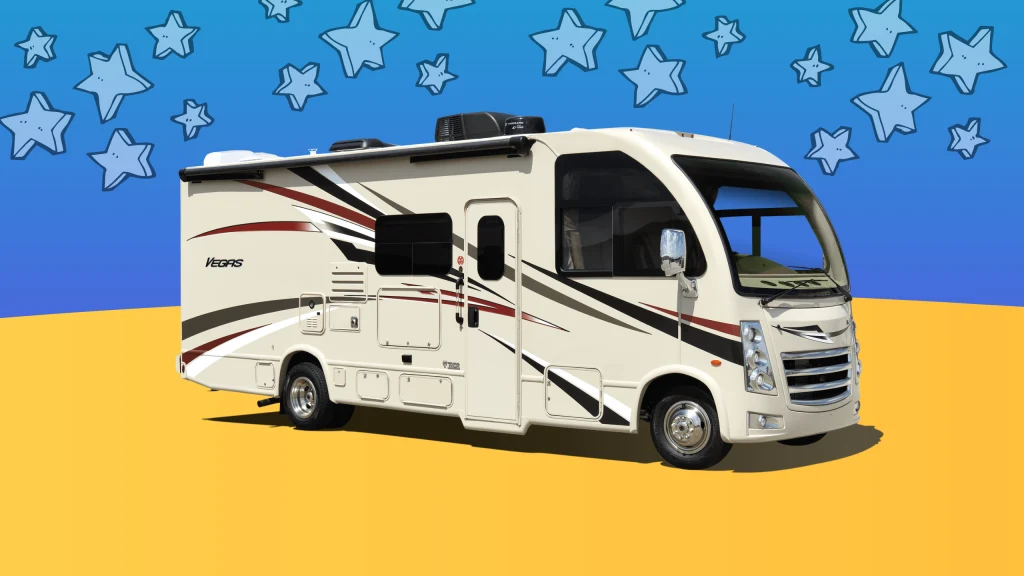
Class C
Think of class C as the younger cousin of class A. They’re typically smaller and easier to maneuver but sacrifice some space and features in return. Class C RVs drive more like large trucks than buses, as many sit on a truck chassis.
You can spot them via their distinctive front end, with the driver and passenger seat accessible via exterior doors, like a regular car. This places you closer to the road and provides an additional entrance to the driving space.
Class Cs can still tow a car or other vehicle, though they’ll have less power than a class A.
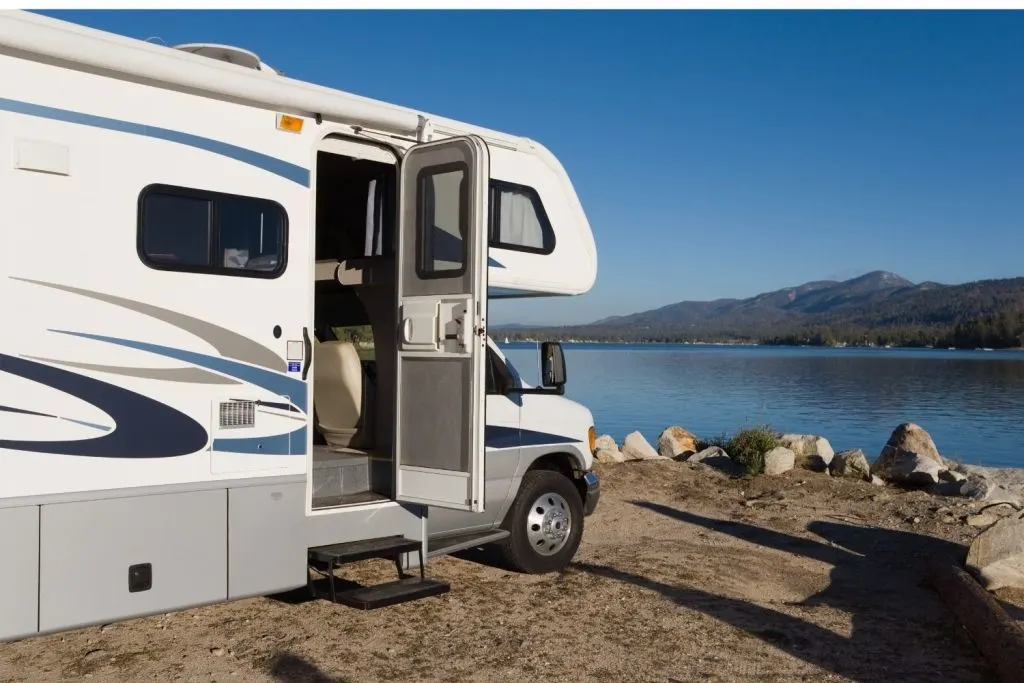
Class B
While class A and class C motorhomes are relatively similar, class Bs are a different beast entirely. These are large vans that include living space and sometimes kitchenettes or bathrooms.
They’re usually about 20 feet long at the most and may not offer full height ceilings, meaning taller occupants will need to stoop.
Often, these rigs include “wet bathrooms,” small bathroom spaces where everything gets wet. You may find yourself sitting on the toilet as you shower. However, class Bs offer the advantage of dramatically increased mobility compared to their far larger class A or C cousins.
Since they’re essentially just large vans, you can take them on more roads, under lower clearances, and into smaller parking spaces.
Pro Tip: Unsure what class size is right for you? These are The Pros and Cons of RV Class Types.
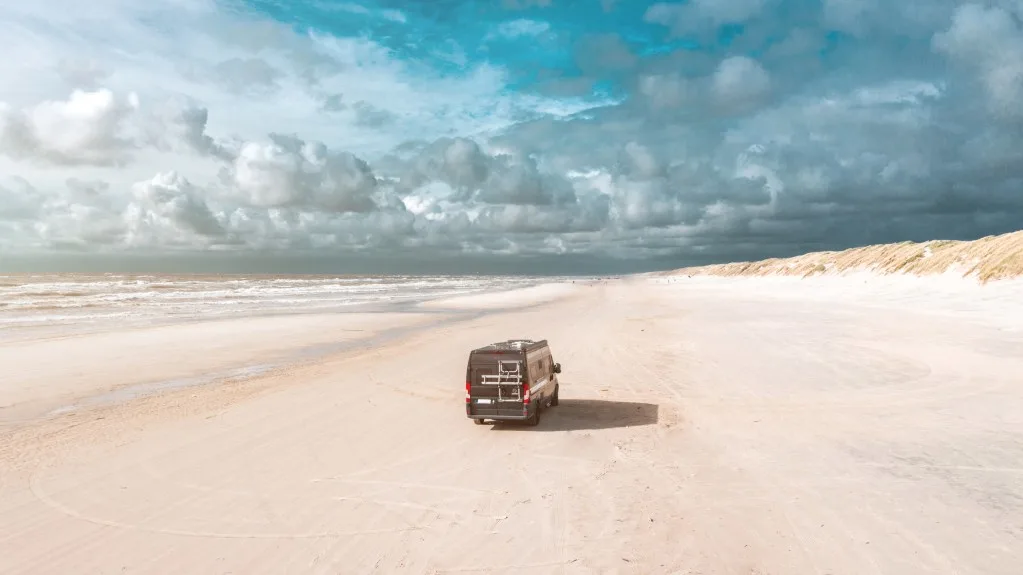
5 Reasons to Avoid Motorhomes
Some people love motorhomes but here are five reasons you might want to avoid them.
1. Motorhomes Guzzle Gas – No Avoiding the Gas Station Stop
Anyone who’s hit the gas station in recent months has likely felt the pinch of rising prices. Now, imagine filling up a 100-gallon or more tank for a class A RV! Even small class Bs will often struggle to get mileage in the mid-teens. Class As and Cs can get 10 miles or less per gallon.
Consider these gas costs throughout the entire time you own your motorhome. Suddenly, an already pricey purchase becomes even more expensive.
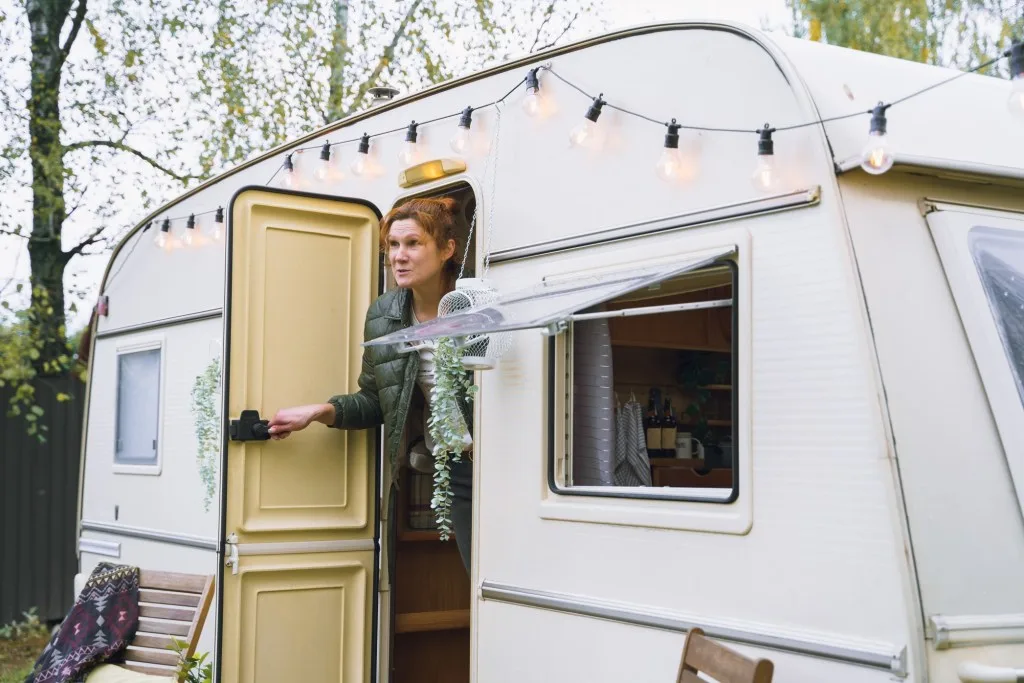
2. Limited Floor Plans
For a variety of reasons, most motorhomes have relatively similar floor plans. At the front, you’ll find the driving area, followed by living space and a kitchen or kitchenette. Next is a bathroom and bedroom.
With the need to accommodate the driver’s seat and the mechanical parts, there aren’t too many ways to layout a motorhome. In comparison, you’ll find travel trailers and fifth wheels in all sorts of styles.
Pro Tip: When reading up on RV life, it doesn’t always seem like life on the road would be an RV Nightmare. However, it can be challenging. This is Why RV Life Isn’t As Rewarding As Expected.
3. Limited Storage
Smaller motorhomes can, unfortunately, be very short on storage space. Beyond the limited space you have inside any RV, you’ll be restricted to just a few basement storage compartments.
This is due to the engine and other necessary systems occupying most of the space below your living area.
These basement storage compartments generally aren’t very large, secure, or weather-proof either. This means you may not want to store valuable or sensitive items here long-term. Larger motorhomes tend to avoid this issue, but you should take a good look at how much storage each model offers.
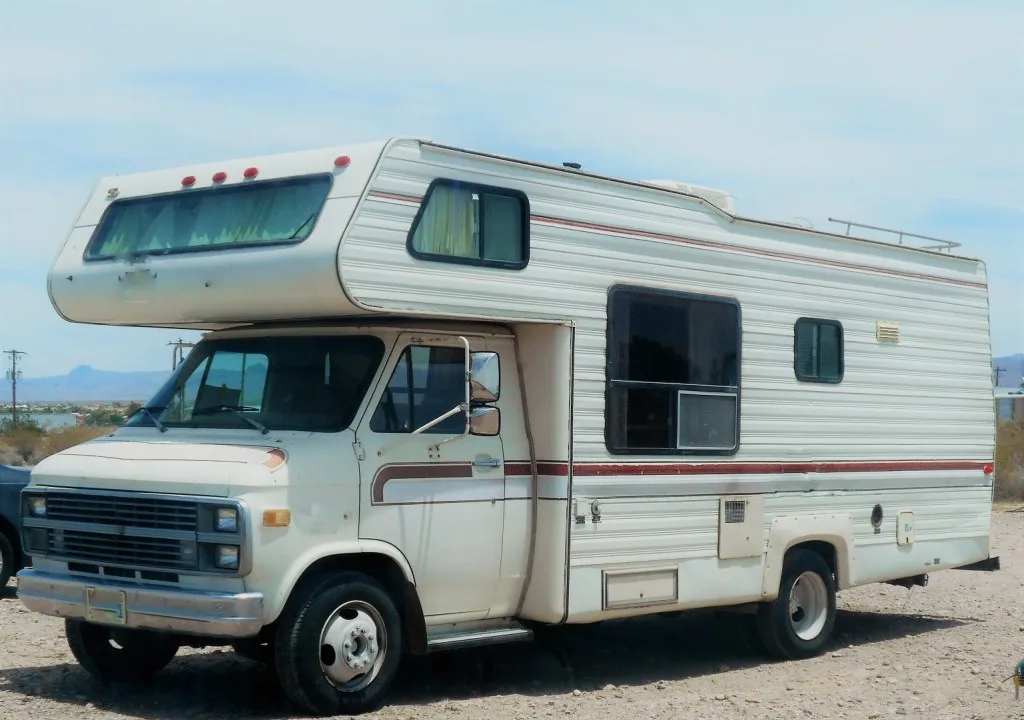
4. More Expensive Than Towables
In just about every way, motorhomes will cost you significantly more than a comparably sized towable RV.
The need to include a powerful engine along with the rest of an RV’s complex systems dramatically increases the prices you’ll pay for new or used motorhomes. Motorhomes may also cost you more for repairs and on gas.
5. Engine and Living Area Combined
Having to combine your engine and living area into the same footprint means you’ll naturally have less space than a similar-sized towable.
This means those looking for a spacious ride may need to upgrade to a length longer than anticipated. More seriously, any significant issues with the engine, such as a fire, will occur right in your living space.
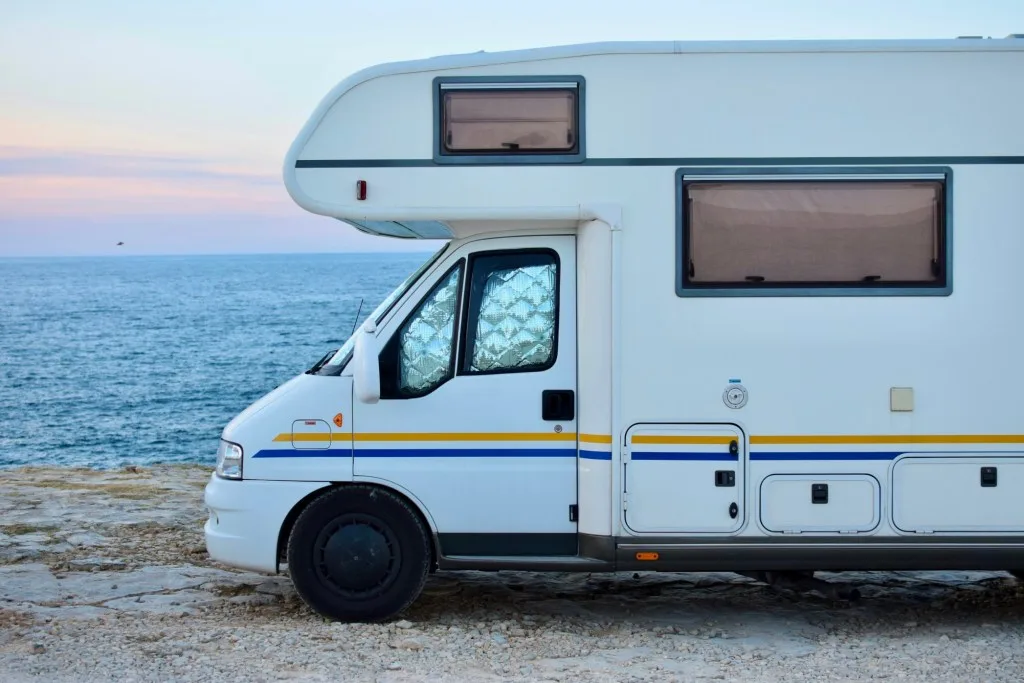
Motorhomes Aren’t All Bad and You Can Avoid Tricky Trailer Driving
By now, you may be pretty down on motorhomes — and that’s understandable. But there are some advantages to them as well, especially for certain types of RVers. Many owners love having access to their entire living space while on the road.
Some find motorhomes easier to drive compared to travel trailer-style towables. They don’t require navigating two separate pieces around turns or more complicated backup maneuvers.
In some cases, the cost of a motorhome may even be comparable to a towable RV setup. This is especially true if the towable rig requires you to upgrade to a large, more powerful truck to tow it.
Are You Team Motorhome or Will You Avoid Them?
Finding the right RV isn’t easy and requires thoughtful consideration of your own travel style, preferences, and circumstances. Some may find the flexibility and lower prices of a travel trailer appealing.
Others may love the convenience of driving their living space itself or don’t want to buy a truck. There’s no right answer to the motorhome vs. towable debate.
Where do you fall on this divide?
Discover the Best Free Camping Across the USA
To be honest with you, we hate paying for camping. There are so many free campsites in America (with complete privacy).
You should give it a try!
As a matter of fact, these free campsites are yours. Every time you pay federal taxes, you’re contributing to these lands.
Become a FREE CAMPING INSIDER and join the 100,000 campers who love to score the best site!
We’ll send you the 50 Best Free Campsites in the USA (one per state). Access the list by submitting your email below:
I guess we are Team Motorhome. Having owned and traveled in everything from a Class A down to a tent we found that what we travel in is what fits our life style. It is true that if you are worried about fuel prices you should be using at tent. To be honest our motorhome does about the same as the diesel and big gas trucks that are pulling fivers and bumper buggies. In some comparisons we do better. Yes you need to have a toad when you have a class A or C, not required but makes life easier. I mentioned life style fit. Our travel involves moving every week or two, with the occasional month stay. The connivence of not maneuvering multiple steps (average fiver 4 or more steps to get in and 2 or 3 once inside) is a big consideration for older and wiser knees. Our coach has 3 steps. The security of being able to stop for the night and not having to leave the safety of the coach at a rest area or store lot has paid off more than once. I agree on the issue of having the engine part of your living unit when it comes time for repairs or maintenance. Yes the floor plans are limited but it does not matter if the offering is right for your style. Will I have a bumper bumper of fiver again. Could be shen our travel style changes. For now we are Team Class A.
We have had. 2 Motorhome in our lifetime of RVing. One a 20 ft way back in the 1960.
We now have a 34 ft Rexall A class which has been wonderful, we took a cross country trip a few years back from ca. to Florida up to Canada then back home the northern route. We were gone 4 months and put on 2300 miles.
Plus when we are home and have guests it makes a great “ Guest cottage”
But we do agree the gasoline fill up hurts for 75 gallons. We also pull a Mercedes Smart Car behind us which is wonderful , when we get set up we don’t have to move the RV to sightsee.